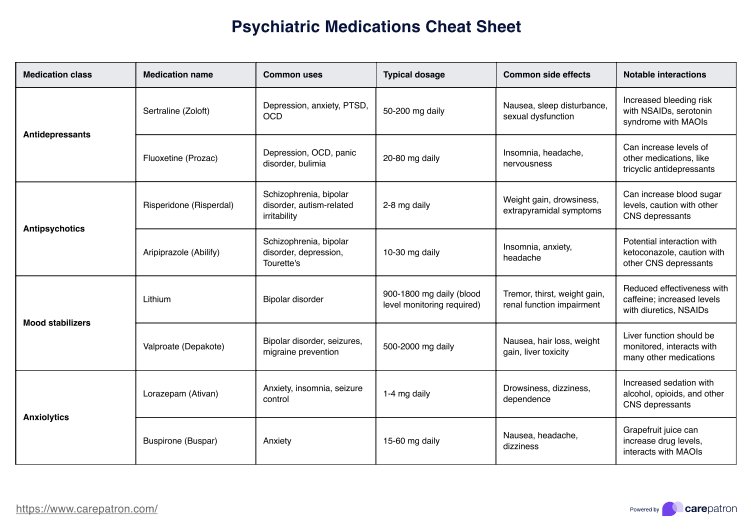Yes, Carepatron's software is versatile and can be adapted to Carepatron's psychiatric practices, from individual therapists to larger clinics, offering customizable features to meet diverse needs.

Psychiatric Medications Cheat Sheet
Discover the benefits of Carepatron's Psychiatric Medications Cheat Sheet for psychiatric practices. Download a free PDF template here.
Use Template
Psychiatric Medications Cheat Sheet Template
Commonly asked questions
Absolutely, Carepatron enhances patient engagement through its online patient portal, which facilitates easy communication, appointment scheduling, and access to health information, improving the overall patient experience.
Carepatron prioritizes data security by adhering to healthcare regulations and employing advanced security measures to protect patient information, ensuring confidentiality and compliance.
EHR and practice management software
Get started for free
*No credit card required
Free
$0/usd
Unlimited clients
Telehealth
1GB of storage
Client portal text
Automated billing and online payments











